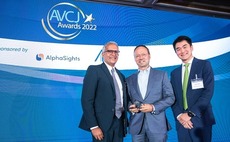
Asia buyout returns: Spoilt for choice?
Fund managers believe the ability to finance and refinance deals on attractive terms, as well as a wider array of paths to liquidity, will underpin performance in Asia
Asian private equity’s not-so-dirty little secret is that large-cap buyout managers have revised their underwriting from returns of 25%-plus to around 20% in recent years – a result of increased competition for the limited number of deals available at the top end of the market.
This is not expected to change in the economic fallout from COVID-19. At least not while value creation teams can still make a difference, leveraged finance is available on borrower-friendly terms, and exits – on average – are not being pushed out because managers have a plethora of realization routes at their disposal. It’s also worth noting that valuations in industries where private equity firms are still happy to tread have not modified as much as some might have anticipated.
These conditions are not set in stone. When the pandemic hit, questions were immediately asked about the vulnerability of existing financing packages ahead of an inevitable wave of covenant breaches. A combination of relative discipline on leverage levels, a trend towards cov-lite or cov-loose, government support, and banks willing to be patient has at least delayed the painful consequences. In some geographies and sectors there might not be any consequences at all.
A deterioration in macroeconomic conditions could threaten this stability. Similarly, lenders might become less generous on new leveraged loans. However, David Gross-Loh, a managing partner for Asia at Bain Capital, told the AVCJ Forum that massive capital surpluses in the likes of Korea, Japan and Taiwan will ensure cheap debt remains readily available for the foreseeable future. Yichen Zhang, CEO of CITIC Capital, noted that even China is becoming easier as banks get up to speed.
The ability to finance – and refinance – deals is essential as private equity firms ready themselves for longer-than-anticipated investment horizons, especially for businesses that have been challenged by COVID-19. But buyout managers said they expected little change in the weighted average holding period. While some assets will require more time for markets to turn and value creation initiatives to kick in, others are on a faster track to realization.
This is somewhat difficult to reconcile with the fact that exits, while rebounding from the first-quarter nadir, are still a fraction of pre-COVID-19 levels. Proceeds from Asia-based deals came to $20.7 billion in the first nine months of 2020, down from $53.4 billion in the same period of 2019.
A more strategic approach to portfolio management might explain the weighted average holding period issue. Managers are increasingly conscious of the need to embark on a new fundraise with at least some risk taken off the table in the previous vintage. Certain assets, therefore, might be positioned for rapid realizations, fully or partially.
As Gross-Loh observed, private equity firms in Asia have more routes to liquidity than ever before: the standard trade sale and IPO options, plus dividend recaps (see the earlier point about leveraged financing), partial exits to strategic investors, sales to other financial sponsors, full or partial exits to LPs that want prolonged and direct exposure to assets, even spinning out choice assets into continuation vehicles backed by secondary investors (a likely theme for 2021).
Ganen Sarvananthan, Asia co-managing partner at TPG Capital, threw in another possibility – special purpose acquisition vehicles (SPACs). The craze for these structures in the US is spilling over into Asia, but it remains to be seen whether they represent a structural shift in the market or a temporary phenomenon driven by effervescent equity markets and basic opportunism.
Sarvananthan appeared to suggest the former: “How [SPACs] acquire assets and what they acquire and how that works, and whether there is growth of a new SPAC market on the Asian exchanges – a lot could happen over the next five years.”
Latest News
Asian GPs slow implementation of ESG policies - survey
Asia-based private equity firms are assigning more dedicated resources to environment, social, and governance (ESG) programmes, but policy changes have slowed in the past 12 months, in part due to concerns raised internally and by LPs, according to a...
Singapore fintech start-up LXA gets $10m seed round
New Enterprise Associates (NEA) has led a USD 10m seed round for Singapore’s LXA, a financial technology start-up launched by a former Asia senior executive at The Blackstone Group.
India's InCred announces $60m round, claims unicorn status
Indian non-bank lender InCred Financial Services said it has received INR 5bn (USD 60m) at a valuation of at least USD 1bn from unnamed investors including “a global private equity fund.”
Insight leads $50m round for Australia's Roller
Insight Partners has led a USD 50m round for Australia’s Roller, a venue management software provider specializing in family fun parks.








